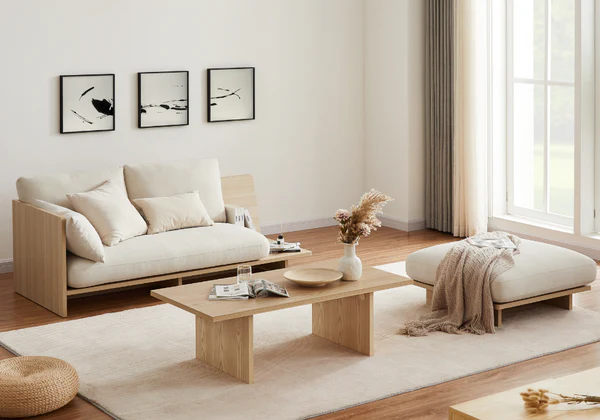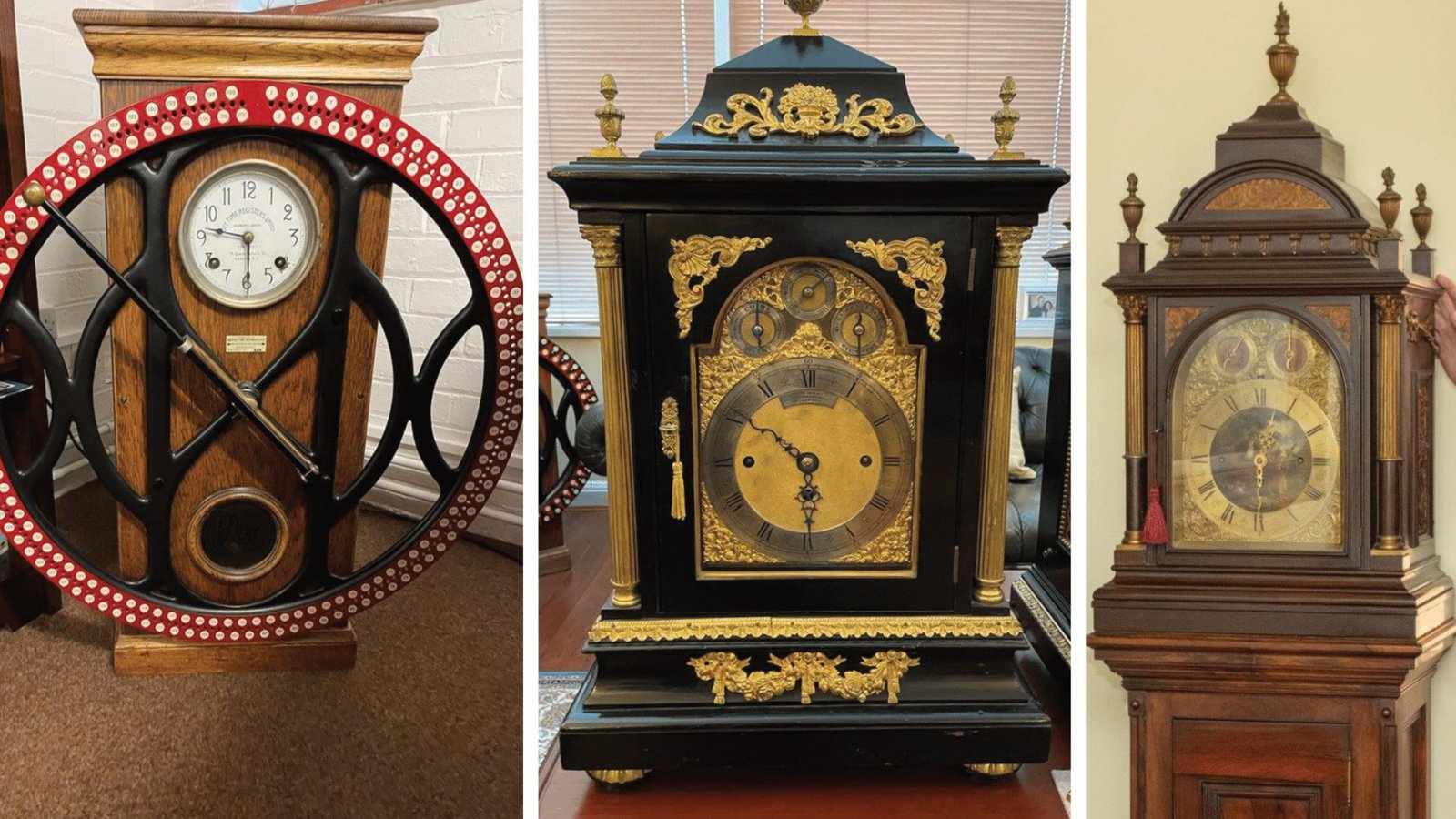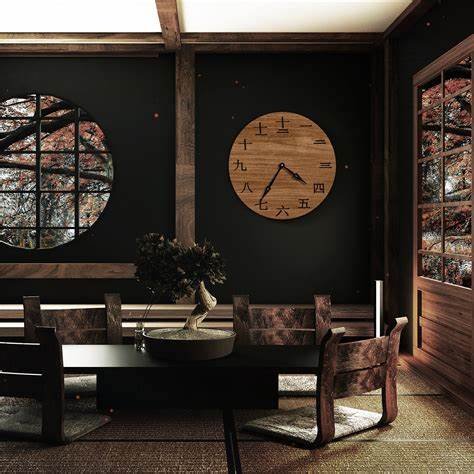Japanese clocks, known for their precision, craftsmanship, and unique aesthetic appeal, play a significant role in interior design. These timepieces are not just functional but serve as artistic statements that can enhance the atmosphere of any space. Rooted in a tradition of minimalism and attention to detail, Japanese clocks offer more than just a way to tell time — they are a blend of art, culture, and design philosophy.
In this post, we explore how Japanese clocks can transform interior spaces, reflecting a harmony between utility and beauty that resonates with contemporary design trends.
1. Minimalism and Elegance in Modern Interiors
One of the most striking features of Japanese clocks is their minimalist design. In line with Japan’s architectural and artistic traditions, these clocks often emphasize simplicity and clean lines, making them a perfect addition to modern interiors that prioritize minimalism.
- Wabi-Sabi Aesthetic: Many Japanese clocks are influenced by the wabi-sabi philosophy, which embraces simplicity, imperfection, and the beauty of natural materials. A clock with a wooden frame and an understated dial can add a touch of natural beauty and tranquility to any room.
- Seamless Integration: Due to their minimalist and subtle designs, Japanese clocks can seamlessly blend into various interior styles, whether it’s a modern apartment, a traditional home, or a workspace. Their presence doesn’t overwhelm a space but instead enhances its serenity and balance.

2. Cultural Significance and Storytelling
Incorporating a Japanese clock into your home or office goes beyond design; it also brings a cultural narrative into your space. Japanese clocks, particularly traditional Wadokei, tell a story of Japan’s rich history and unique approach to timekeeping.
- Historical Influence: By placing a clock inspired by the Wadokei in your home, you are showcasing a timepiece that symbolizes the connection between nature and time. The Wadokei divided the day into six unequal periods, emphasizing Japan’s harmony with the natural world. This not only adds historical depth to your space but also reflects an appreciation for nature’s rhythms.
- Symbolism in Time: The clock in Japanese culture often represents the passage of time and life’s transient nature. Displaying a Japanese timepiece in your space brings an element of mindfulness, encouraging an awareness of time’s flow in everyday life.
3. Blending Tradition and Modernity
Modern Japanese clocks are a fusion of traditional aesthetics and contemporary technology. While maintaining a minimalist and cultural design, many modern Japanese clocks are equipped with advanced technology such as solar power, quartz mechanisms, and atomic precision.
- Contemporary Style: Many contemporary Japanese clocks are designed with a sleek, futuristic look, often using materials like metal, glass, and minimalist colors like black, white, and silver. These designs fit perfectly into high-tech or modern spaces, combining the best of both worlds: tradition and innovation.
- Eco-Friendly Options: Some modern Japanese clockmakers prioritize sustainability. For instance, solar-powered or energy-efficient clocks not only add a modern touch but also align with the growing demand for eco-friendly interior solutions.
4. Focal Point and Conversation Starter
A unique, well-crafted Japanese clock can serve as a focal point in any room. Whether it’s a wall-mounted clock in a living room, a traditional mantelpiece clock, or a desktop timepiece in an office, these clocks can become the centerpiece of attention.
- Artistic Craftsmanship: Many Japanese clocks are handmade, showcasing exceptional craftsmanship and artistic expression. These can act as conversation starters, particularly when guests or clients appreciate the clock’s design, craftsmanship, and cultural significance.
- Enhancing Ambiance: Japanese clocks, especially those that incorporate traditional elements such as wooden frames or natural materials, can enhance the ambiance of a room. Whether it’s adding warmth to a minimalist space or creating a sense of calm in a busy environment, Japanese clocks have the power to transform the feel of a space.
5. Versatility Across Different Spaces
Japanese clocks are highly versatile and can be integrated into various types of interiors. Whether you’re designing a cozy home, a professional workspace, or a relaxing public space, there’s a Japanese clock to suit the environment.
- Living Spaces: A Japanese wall clock can add a touch of sophistication to your living room or kitchen, making the space feel more curated and thoughtful.
- Workspaces: In professional environments, Japanese clocks offer a combination of functionality and design, helping create a balanced and calming work atmosphere.
- Public Spaces: For places such as cafés, libraries, or boutique hotels, Japanese clocks can add a unique cultural element that sets the ambiance apart from standard designs.
Conclusion
Japanese clocks play a significant role in interior design by merging traditional craftsmanship with modern minimalism. Their unique blend of history, culture, and innovation allows them to serve as both functional tools and artistic pieces that can enhance the aesthetic and atmosphere of any space. Whether you prefer a simple, minimalist clock or a more traditional timepiece with cultural significance, Japanese clocks offer a timeless appeal that makes them ideal for a variety of interior design styles.
Incorporating a Japanese clock into your home or workspace is more than a design choice — it’s a statement that reflects the harmonious balance between tradition and modernity.




Unsere besten Casinos bieten unterhaltsame Spiele und tolle Aktionen, wie Boni ohne Einzahlung und Freispiele.
300 Freispiele können in dieser Runde gewonnen werden, allerdings kann das Wild-Symbol nicht mit dem Bonus-Symbol ersetzt werden,
um eine Gewinnkombination zu vervollständigen. Das Bonusspiel kann während
der Freispiele erneut ausgelöst werden. Es gibt verschiedene Boni wie
den Ersteinzahlungsbonus, den Willkommensbonus und den Cashback-Bonus.
Zusätzlich bietet das Casino E-Mail-Support an,
wobei Anfragen an oder gesendet werden können.
Wenn ihr einen Blick in die Bonusaktionen werft, stellt ihr schnell fest, dass weitere fantastische
Angebote in Form von Einzahlungsboni auf euch warten. Während ihr in anderen Online Casinos um Millionenbeträge spielt,
liegen die Jackpots bei DaVincis Gold im unteren fünfstelligen Bereich.
Dies dürfte für viele Glücksspielfans ein klarer Minuspunkt sein. Echte Klassiker von bekannten Herstellern werdet ihr hier jedoch
nicht finden. Da lässt sich mittlerweile sogar bereits der eine oder andere Wettanbieter mit einem umfangreicheren Angebot finden.
Gewinne aus den Freispielen müssen 30x umgesetzt werden und der Höchsteinsatz
beträgt nur 0,03€ je Spin. Obendrein spendiert das Onlinecasino noch 555 Freispiele
für den Slot “Gold Bricks”. Wenn ihr dagegen die Software nutzt, wird diese euch anfangs fragen, ob ihr
um Geld oder zum Spaß spielen wollt. Der Spieler machte sich Sorgen um die finanziellen Auswirkungen für
sein krankes Familienmitglied und war bestürzt über die Forderung des Casinos, er müsse
weiterspielen und einzahlen, um höhere Auszahlungen zu
erhalten.
References:
https://online-spielhallen.de/irwin-casino-mobile-app-ihr-tor-zu-casino-unterhaltung-uberall-und-jederzeit/
Casinospiele sind fair, wenn sie transparente und hohe Auszahlungsraten haben. Hier möchte ich
die häufigsten Fragen beantworten, die mir deutsche Spieler
zum Thema Online Casinos zugeschickt haben. Juli 2021 sind Online
Glücksspielanbieter in Deutschland offiziell legal.
Beachtet, für Freispiele gelten oft leicht
veränderte Bedingungen, die ihr euch genau ansehen solltet, bevor ihr die Freispiele nutzt.
Es gibt genau festgelegte Regelungen zum Datenschutz, dem Umgang mit dem Geld der Spieler oder etwa
der Fairness der Casinospiele. Damit ein Casino
eine staatliche Glücksspiellizenz bekommt, muss es strenge Auflagen erfüllen. Je
exakter du diese benennen kannst, desto einfacher wird
es, den geeignetsten Anbieter zu finden – nämlich einen, der
perfekt zu deinen Bedürfnissen passt.
References:
https://online-spielhallen.de/starda-casino-promo-code-ihr-schlussel-zu-exklusiven-vorteilen/
If you have a preference for games, make sure that the bonus
you choose allows you to enjoy your favorite
games. Before you start playing at Zoome Casino Casino ,
check out the different types of bonuses offered by Zoome Casino
. No app download required – access games directly through your mobile browser with full functionality retained.
Once registered, you’ll immediately access welcome bonuses and can start exploring
our game library.
When you need help, Zoome Casino support is available 24/7.
Once set, this cannot be reversed until the agreed time has passed.
Once activated, you’ll need to enter a time-sensitive code alongside
your regular login credentials. Its licence requires compliance with anti-fraud,
fair gaming, and responsible gambling standards.
References:
https://blackcoin.co/plinkocasino-a-complete-overview/
That means you’re free to play the biggest progressive pokies
on the net or grab a few spins of roulette on some down time.
While it’s difficult for Aussie casinos to offer action if they’re based in Australia, there’s nothing to stop consumers getting their fix.
While Crown is busy launching sister casinos in Sydney and WA, the Melbourne casino remains the
firm’s main concern. Operated by mogul James
Packer’s Crown Resorts, the Melbourne casino is the flagship gambling
establishment in the state, and perhaps the whole
of the country.
Step into a sanctuary of peace and luxury at Crown Spa Melbourne
— one of Australia’s most exclusive wellness destinations.
Crown Promenade offers affordable luxury with stylish rooms and thoughtful amenities.
Our team monitors all activity and transactions in real-time to detect and prevent fraud, identity theft, or unauthorized access.
Whether you’re booking a hotel stay, playing pokies, or joining us online, we
use the latest technologies to keep you safe. Crown Melbourne is committed to providing a safe, secure, and responsible gaming environment — both
onsite and online. Every time you play or spend, you earn points that
unlock new privileges, cashback, and upgrades.
Common complaints in negative reviews include disputes over bonus terms,
delayed withdrawals during verification processes, and
difficulties with account closures. The layout organizes games into clear categories with filtering options, and the platform is optimized for both desktop browsers and mobile devices.
The casino implements standard security measures including identity verification to prevent
fraud and comply with anti-money laundering regulations.
The Sunday reload bonus offers a 50% match up to A$300
on deposits of A$30 or more. The free spins are valid for
specific games, typically popular titles from leading providers.
Your first deposit gets a 100% match up to A$1,000 plus 100 free spins, delivered in batches of 20 over five consecutive days.
RocketPlay Casino entices new players with a substantial welcome
package that can boost your initial bankroll significantly.
Discuss anything related to RocketPlay Casino with other players, share your opinion, or get answers to
your questions.
For high rollers, the special High Roller Bonus delivers a 50% match up to A$2,500 on deposits of A$300 or more.
You’ll have five days to meet these requirements, and your maximum
bet while playing with bonus funds is capped at A$7.50 per spin. You should always make sure that you meet all regulatory requirements before playing in any
selected casino.Copyright ©2025
References:
https://blackcoin.co/space-force-gambling-game/
Whether you’re after a wide range of pokies, smooth withdrawals, or flexible payment methods (yes, crypto is here too), Leon covers it all.
Click below and register with Leon Casino today — your welcome bonus is waiting!
If you’re registering from Australia, you can claim a 100% welcome
bonus up to AUD $1,000, plus a generous helping of free spins
to get your slot journey rolling. It doesn’t matter if you’re using Android or iOS — Leon’s website is perfectly optimised for mobile
browsers. Not available in Western Australia due to local gambling regulations.
And by the end, you’ll know whether it’s the right place
for your next game.
These typically require a qualifying deposit and have a 20x
wagering requirement on winnings. From time to
time, Leon Casino offers up to 100 free spins on selected
slots as part of ongoing promotions. Many titles offer demo modes,
allowing users to practice strategies before committing
real AUD. The platform features all the classics, including multiple versions
of blackjack, roulette, and baccarat, each with its
own set of rules and betting limits to suit different preferences.
References:
https://blackcoin.co/mindil-beach-casino-online-comprehensive-review/
online casino paypal
References:
rhea-recrutement.com
online casino uk paypal
References:
interior01.netpro.co.kr
paypal casinos online that accept
References:
https://unidemics.com/employer/online-casino-mit-paypal-einzahlung-die-top-casinos-im-vergleich/
online casino paypal einzahlung
References:
https://i-medconsults.com/companies/10-best-online-casino-real-money-sites-in-usa-for-2025/
online american casinos that accept paypal
References:
https://jobsleed.com/companies/top-online-casinos-rated/
paypal casino android
References:
https://macrorecruitment.com.au/employer/best-online-casinos-australia-top-aussie-real-money-sites-2025/